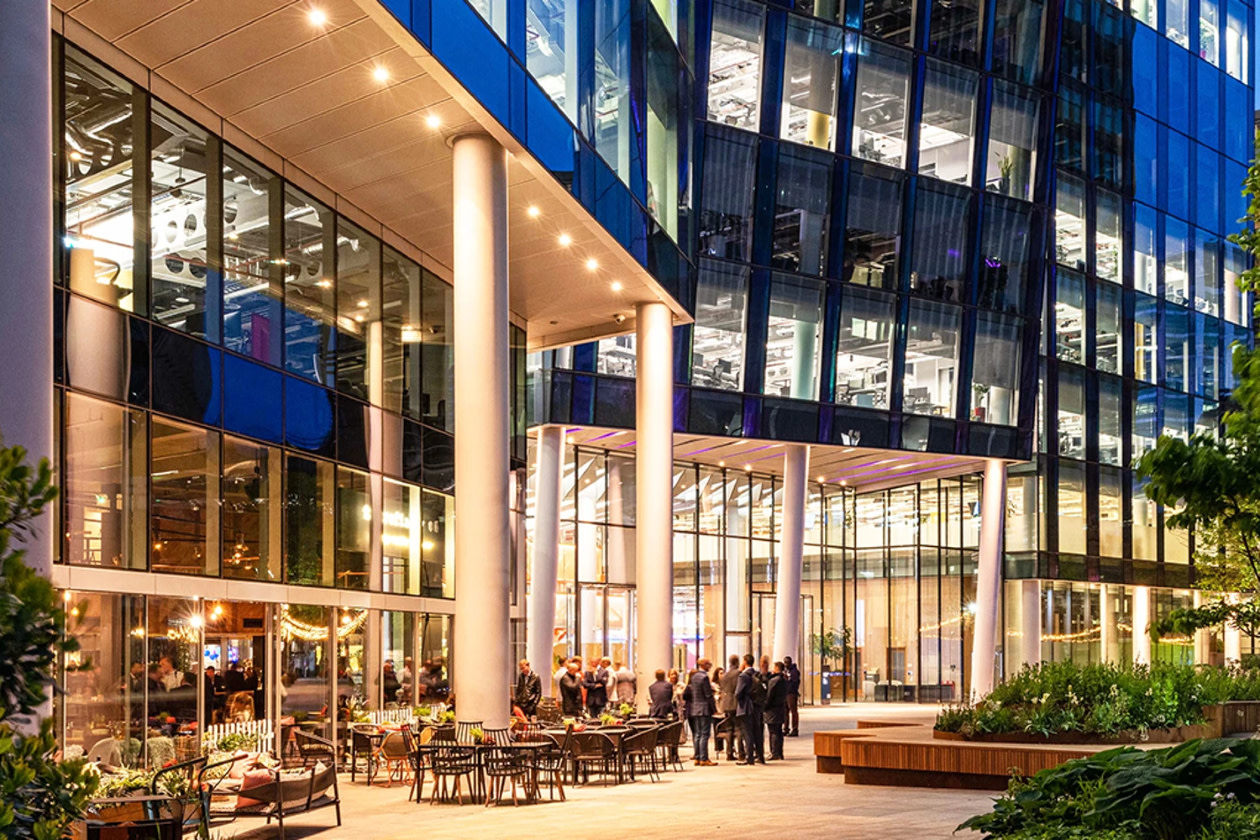British Land’s full-year net rental income was up 3% on a like-for-like basis to £439mn. Retail & London Urban Logistics led the way, up 5%, while Campuses grew by 2%.
Underlying profit grew slightly faster at 4% to £279mn, helped by increased fee income and cost discipline.
Estimated rental value (ERV) rose 4.9%, at the top end of guidance. Occupancy improved from 97.2% to 97.7%, with midweek office utilisation now back to pre-covid levels.
Underlying net debt was up £0.4bn to £3.6bn reflecting increased investment activity. That’s pushed two important measures of balance sheet strength (loan to value and Net Debt to EBITDA) toward the top edge of their target ranges.
Underlying profit this year is expected to rise by 2%, some way below market forecasts.
The annual dividend was held flat at 22.8p.
The shares fell 4.8% following the announcement.
Our view
British Land had a decent year, but low single-digit profit growth guidance wasn’t enough to please investors. The company is investing heavily in new developments, which means debt and costs are rising before it sees the benefits of additions to the portfolio complete.
London campuses remain a priority, with demand for high-quality, well-connected office spaces driving leasing activity. British Land already operates some prime real estate in the City, and here demand for new space is improving with office usage back to pre-covid levels.
The science & technology sector is a key part of this strategy. It accounts for about 20% of British Land’s campuses but that could rise to 50% by the end of the decade. Recent progress at key sites like 1 Triton Square and The Optic in Cambridge shows the company is successfully attracting tenants in this fast-growing field.
Urban logistics is another exciting growth area. The company is focusing on central London, where demand for warehouse space is high and supply is tight. Projects like Mandela Way- multi-storey warehouse set to open this year - show British Land is adapting to trends like e-commerce and same-day delivery.
But its retail parks that have been a standout performer, in terms of both rental growth and capital appreciation. Over £700m was spent acquiring retail parks last year, including a major £441mn deal for seven new sites. These parks are popular with retailers because they are affordable, easy to access, and adaptable. The group’s growing portfolio in this area is well-positioned to benefit from continued demand for out-of-town shopping locations.
Development is making a comeback, with a focus on urban logistics and campuses. Work is progressing on key sites like 2 Finsbury Avenue and Regent’s Place. With rents rising, the outlook for new developments is improving after a tough period, although signs of build cost inflation returning should be watched carefully.
The company’s finances remain strong, with enough funding available to help support future growth and dividends. But with development back in focus, dividend growth is taking a back seat and no returns are guaranteed. If the new sites don’t perform as expected, the scope for further growth in shareholder payouts could be impacted.
British Land is well-positioned for the future. Its focus on retail parks, urban logistics, and campuses reflects a shift to areas with the strongest potential for growth. As market conditions improve, the bold investment strategy should yield results, but it certainly adds risks. If economic conditions deteriorate, sentiment and demand for commercial property could be impacted.
Environmental, social, and governance (ESG) risk
Broadly, real estate is relatively low risk in terms of ESG. One of the principal drivers of this risk is the capacity to integrate material ESG considerations into decision-making, risk management and public reporting; the most material ESG considerations are environmental, like carbon emissions reduction, energy efficiency and physical climate risk. The rise of hybrid working has also reduced demand for commercial property, making product governance and customer satisfaction a top priority. Other risks to monitor include labour relations, business ethics, and emissions & waste.
According to Sustainalytics, British Land’s overall management of material ESG issues is strong.
British Land Co. Plc has a robust environmental policy, with a portion of executive remuneration explicitly tied to sustainability performance targets. The company also has an effective whistleblower program. Additionally, board-level oversight is in place for ESG matters. However, its ESG reporting does not yet fully align with leading industry standards.
British Land key facts
All ratios are sourced from LSEG Datastream, based on previous day’s closing values. Please remember yields are variable and not a reliable indicator of future income. Keep in mind key figures shouldn’t be looked at on their own – it’s important to understand the big picture.
This article is not advice or a recommendation to buy, sell or hold any investment.No view is given on the present or future value or price of any investment, and investors should form their own view on any proposed investment.This article has not been prepared in accordance with legal requirements designed to promote the independence of investment research and is considered a marketing communication.Non - independent research is not subject to FCA rules prohibiting dealing ahead of research, however HL has put controls in place(including dealing restrictions, physical and information barriers) to manage potential conflicts of interest presented by such dealing.Please see our full non - independent research disclosure for more information.


